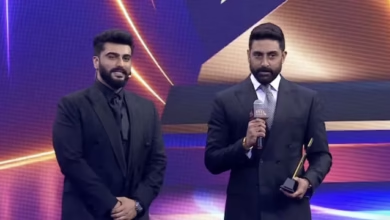This Could Be India’s First Gainer From US-China Tariff War
In the long run, geopolitics promises to exclude Boeing from one of the world's largest plane markets.

Air India Ltd is seeking to acquire Boeing Co planes Chinese carriers have spurned, people close to the situation said, following in the footsteps of Asian carriers who wish to cash in on Washington‘s and Beijing‘s trade war.
The Tata Group-owned airline, which desperately requires airplanes to speed up its turnaround, is looking to make a move on Boeing to buy a series of jets the US planemaker was preparing for Chinese carriers before mutual tariffs prevented the deliveries, the people said, who are aware of talks at the Indian airline and did not wish to be named since the information isn’t public.
Air India also is keen on picking up slots for future deliveries if they materialize, the individuals added. The airline benefited earlier from China’s retreat already – up until March, it had taken on 41 737 Max jets initially constructed for Chinese carriers whose deliveries were put on hold that stretch back to the model’s grounding in 2019.
Spokespersons for Air India and Boeing declined to comment. Malaysia Aviation Group Bhd is also negotiating with Boeing for Chinese carriers’ relinquished delivery positions, Bernama said on Sunday.
Chinese carriers were instructed by the government not to take in Boeing planes, Bloomberg News reported last week, following the setting of reciprocal tariffs as high as 125% on US goods by Beijing. Approximately 10 planes were under preparation for delivery at the time, and some 737 Max aircraft in China have since been returned to the US.
Any Boeing aircraft already produced or under production will pose challenges to prospective buyers, since the cabin configurations in many will have already been determined by the initial buyer, and some payments will have already been made. Boeing is unable to sell any aircraft with new owners that are still contracted to airlines in China.
The interest of non-Chinese carriers will mitigate the immediate sting for Boeing, one of America’s top-profile exporters, if the tariff war persists. Nevertheless, the trade war will make it more challenging to scale back a so-called shadow factory that holds stored 737s later this summer. The US manufacturer will give an update on the situation in its quarterly results later this week.
Tension between Washington and Beijing has provided Europe’s Airbus SE with the upper hand over Boeing in China in recent years. Geopolitics, in the longer term, promises to exclude Boeing from one of the world’s largest aircraft markets.
Boeing accumulated a backlog of hundreds of unsold 737 Max aircraft beginning with its grounding, prompted by two fatal crashes, and extending during the pandemic. Beijing regulators were among the final to approve the jet, and other problems also hindered deliveries, prompting the US manufacturer to ultimately begin remarketing the aircraft. Chinese regulators halted 737 deliveries for two months last year due to issues with lithium batteries in cockpit voice recorders.
Air India has shown interest in additional of the produced Max narrowbodies for its Air India Express unit, the individuals said. The carrier is seeking to develop the low-cost subsidiary as part of its push into InterGlobe Aviation Ltd‘s dominant carrier, IndiGo.
Air India was to get around nine more stored 737s by June, bringing the total count to 50 aircraft, Bloomberg News reported last month. The pool was likely to dry up in a couple of months but with the US-China tariff war reshaping the scenario, Air India’s Boeing bonanza may go on.
The aircraft are generally painted over at Bengaluru. Air India Express plans to remove business class from the ones that come in on them with economy by April 2026 but has been slowed down by supply chain problems, the individuals mentioned.
The rest of the 140 narrowbodies from Air India’s order for 2023 won‘t begin until later than March 2026, risking the carrier further behind IndiGo if it cannot acquire any newly available Boeing aircraft.
Air India’s expansion is also going to decelerate due to a retrofit program that will briefly take some of its jets out of service, and a phasing out of some Airbus models. Last month, Chief Executive Officer Campbell Wilson announced that the airline is attempting to lure customers with lower fares as it aims to compensate for old cabins and delayed upgrades.






